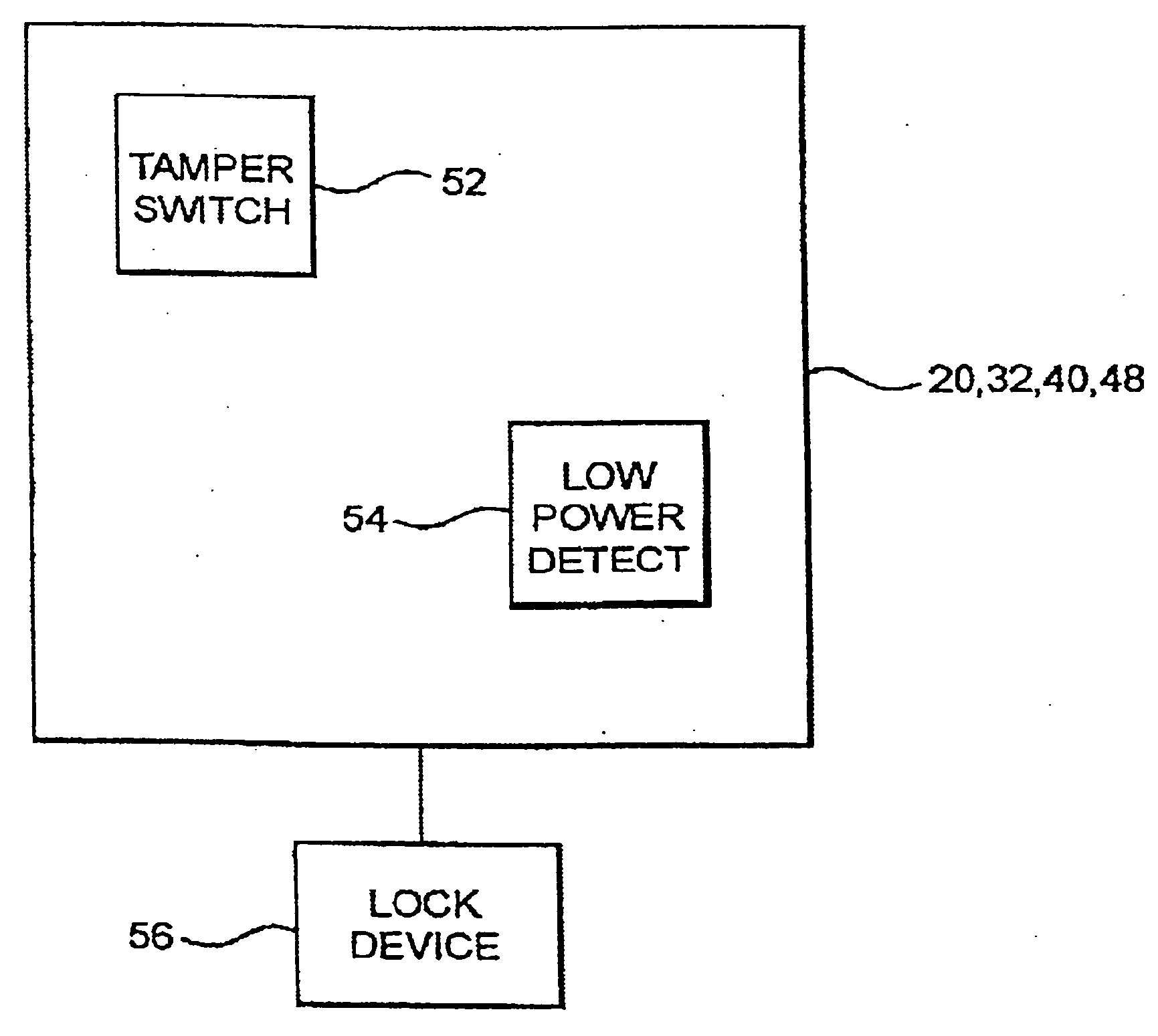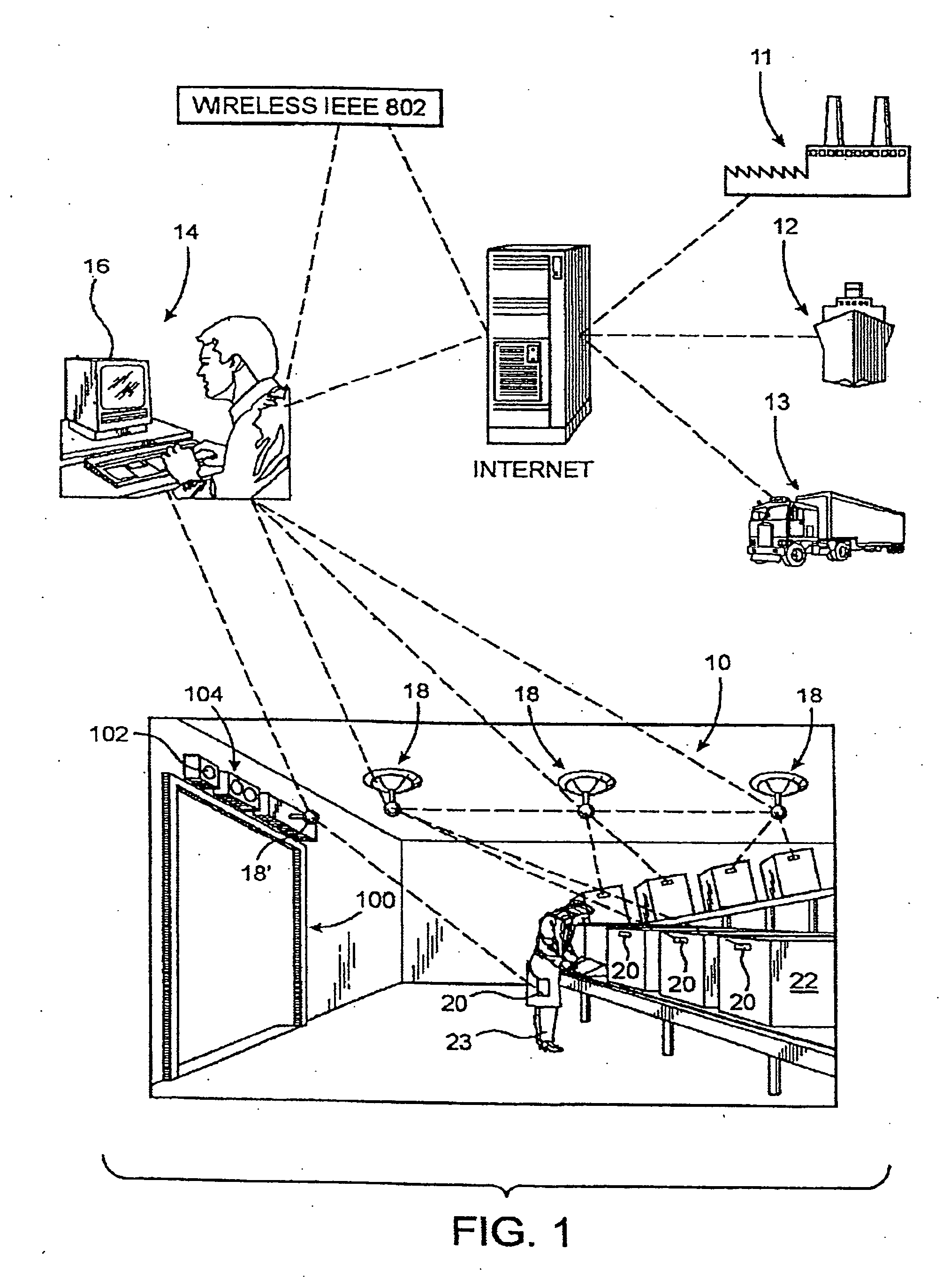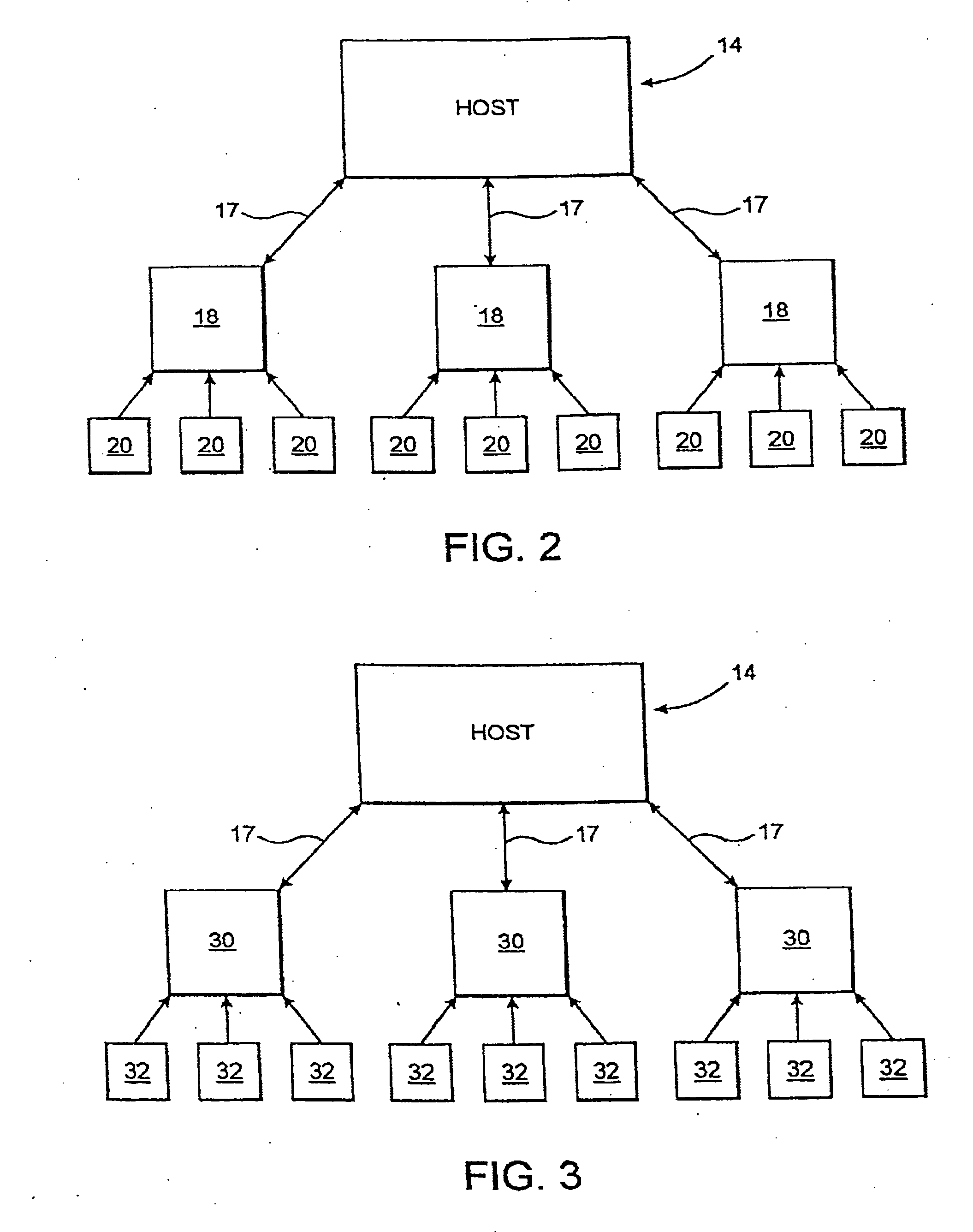Real time total asset visibility system
a total asset and visibility system technology, applied in the field of real-time total asset visibility system, can solve the problems of limiting the information which can reasonably be displayed, partially defeating the goal of efficient inventory, and commonly recognized as being inefficient and cumbersome, so as to increase the range or proximity, increase the power, and increase the range in which the tags are placed.
- Summary
- Abstract
- Description
- Claims
- Application Information
AI Technical Summary
Benefits of technology
Problems solved by technology
Method used
Image
Examples
Embodiment Construction
[0053] As shown in the accompanying Figures and as generally represented in FIG. 1, the present invention is directed to a real time total asset visibility system particularly, but not exclusively, adapted for maintaining effective inventory control as well as being capable of accomplishing efficient tracking of a plurality of articles or objects, including animate and inanimate objects, wherein the status of the various articles or objects can be determined on a real time basis. As used herein, the status of the various monitored articles is more specifically meant to describe the ability to determine the existence, location, identity, direction of movement, as well as the passage of the various articles to and from a monitored locale. However, at least one additional preferred embodiment is structured to also monitor the status of at least one predetermined characteristic of the object such as, but not limited to, temperature. The temperature status may be of particular importance...
PUM
 Login to View More
Login to View More Abstract
Description
Claims
Application Information
 Login to View More
Login to View More - R&D
- Intellectual Property
- Life Sciences
- Materials
- Tech Scout
- Unparalleled Data Quality
- Higher Quality Content
- 60% Fewer Hallucinations
Browse by: Latest US Patents, China's latest patents, Technical Efficacy Thesaurus, Application Domain, Technology Topic, Popular Technical Reports.
© 2025 PatSnap. All rights reserved.Legal|Privacy policy|Modern Slavery Act Transparency Statement|Sitemap|About US| Contact US: help@patsnap.com



